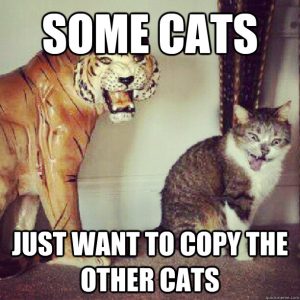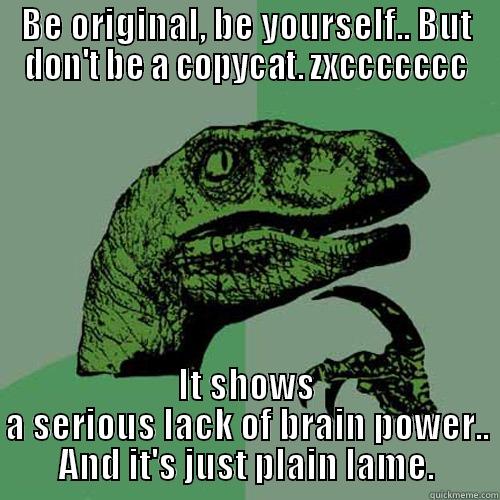It’s been said that imitation is the sincerest form of flattery, but if you’re an artist trying to make a living off creativity, you may beg to differ. The internet makes it easy to share your work with the world, and equally easy for copycats to steal it. Whether you’re a graphic designer, photographer, painter, musician, or other creative professional, chances are you’ll find yourself in this spot eventually. So, what should you do if someone copies your work?
Is your work entitled to copyright protection?
Copyright law is pretty generous when it comes to protecting creativity. You don’t have to register your copyright, although there are benefits to doing so, which I’ll get to in a minute. While it must be original, it need only possess a “modicum of creativity,” according to the courts. A misconception among creatives, though, concerns the protection of ideas. Simply put, ideas are not protectable, in and of themselves. So, if you tell a friend all about a great app you plan on developing, and your friend steals your idea, there isn’t much copyright law can do for you. In legal speak, your work needs to be “sufficiently permanent or stable to permit it to be perceived, reproduced, or otherwise communicated for a period of more than transitory duration” — in laymen’s terms, that means putting pen to paper, brush to canvas, or whatever analogy suits you.
Is your work really being copied?
Next, it’s worth considering whether any actionable copyright infringement is occurring. Let’s pretend you painted the most adorable painting of a kitten. What you have is a copyright in your specific kitten painting; what you don’t have is the market cornered on kitten paintings in general. In other words, you can’t claim that everyone else painting kittens is infringing your work. A couple of things to consider in evaluating whether you’ve been copied include: whether the potential infringer has access to your work, and whether the potential infringer has copied signature elements of your work.

Also bear in mind that the First Amendment permits “fair uses” of copyrighted works for purposes such as criticism, news reporting, teaching, research, and so forth. So, if a blogger writes a scathing review of your clearly genius kitten painting and includes an image of the painting, this is probably a permissible use under copyright law.
Is it worth going after the copycat?
Assuming you have a protectable work, and that work has been copied, is it worth doing anything about it? I would encourage you to think this through from both a monetary and a relational angle.
- As for monetary, is it worth the expense of chasing down the copycat? One obvious factor in this equation is whether you’re planning on monetizing your work, and whether the copycat work would undermine your ability to do so. Another not-so-obvious factor is whether your work is registered. If your work is registered, you can seek attorneys’ fees and statutory damages in a copyright lawsuit; otherwise, you’re limited to proving actual damages (which can be tough) and paying for your lawyer out-of-pocket.
- As for relational, will pursuing the copycat do you more harm than good in your niche? I have known artists who have posted pictures of their work on social media, and then months later, discovered a copycat version created by a social media follower. This is an awkward situation to be in: on the one hand, you don’t want copycat works in the marketplace diminishing the value of your work; on the other hand, you clearly have a superfan. Often in cases like these, the balance may tip in favor of letting the copycatting slide, so as to not alienate your support base.
Confronting the copycat
If you decide it’s worth going after the copycat, here are a few practical suggestions:
- Ask nicely – the friendly approach may work well in cases where relationship management is a high priority, such as with superfans, or other members of your creative community who you’ll have to keep dealing with in the future.
- Cease and desist letter – bring the heat with a letter from your lawyer, demanding that the infringing activity stop.
- DMCA take-down notice – if the copycat work is online, you may send a request to the website operator to remove the infringing material pursuant to the Digital Millennium Copyright Act.
- Copyright lawsuit – if all else fails, there’s always the courts. (Note, however, that copyright litigation can be expensive and time-consuming.)





